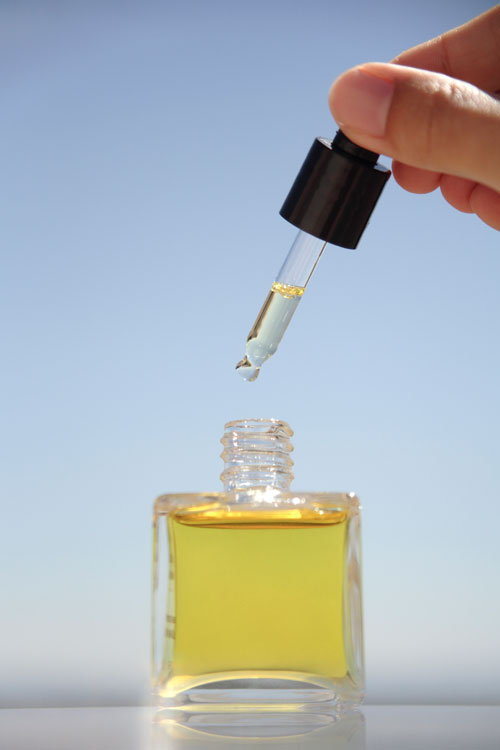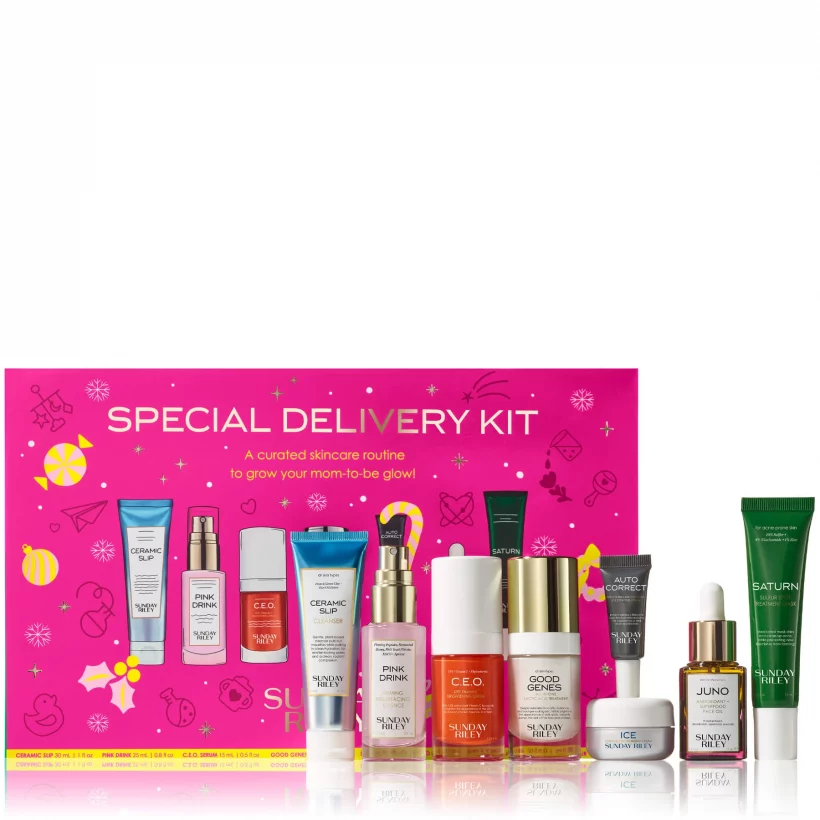Once you see those two positive lines staring back at you on that pregnancy test, so much in your life changes, from those early pesky pregnancy symptoms to the thought and preparation that goes into planning your baby’s nursery and life at your home. While those are some obvious changes that come along with the pregnancy process, it may be surprising to some moms-to-be that pregnancy skincare also goes through a revamp, too. The skincare regimen you might have followed for years may need to be overhauled once you become pregnant.

First, some skincare ingredients are believed to be potentially harmful to a developing fetus, warns Blair Murphy-Rose, M.D., a cosmetic and medical dermatologist at Laser & Skin Surgery Center of New York and clinical instructor of Dermatology at NY Presbyterian Hospital – Weill Cornell Medical Center. Secondly, you may notice some changes in your skin during pregnancy, so you may need to adjust your skincare regimen. “Skin can be more sensitive than usual while pregnant, and certain skin conditions like melasma or acne outbreaks can be more common in many people when pregnant,” Dr. Murphy-Rose adds.
Meet the Experts
Dendy Engelman, M.D. a cosmetic dermatologist and Mohs surgeon at the Shafer Clinic
Blair Murphy-Rose, M.D a cosmetic and medical dermatologist at Laser & Skin Surgery Center of New York and clinical instructor of Dermatology at NY Presbyterian Hospital – Weill Cornell Medical Center
Ideally, to be the most cautious, it’s a good idea to switch up your skincare routine once you start trying to conceive. This helps ensure that any unsafe skincare ingredients are fully out of the bloodstream when conception occurs and a fetus begins to develop, says Dendy Engelman, M.D., cosmetic dermatologist and Mohs surgeon at the Shafer Clinic. “This may not be possible for everyone, however, so the general rule is the earlier into the pregnancy, the better,” she says. “If you have a surprise pregnancy, don’t worry — just make any necessary changes to your skincare routine as soon as you find out.”
As always, if you have any specific concerns, it’s best to consult your dermatologist and OB to ensure your skincare routine is right for you. Meanwhile, here’s a general guide of the most common dos and donts when it comes to pregnancy skincare.
Skincare ingredients to avoid during pregnancy
To deal with skin sensitivity during pregnancy, Dr. Murphy-Rose recommends using hypoallergenic products to avoid irritation. “Because there is good evidence to suggest that we can absorb into our bloodstream some of the products we use on our skin and hair, it’s wise to avoid questionable ingredients like parabens, phthalates, PEGs, sulfates, and formaldehyde releasers,” she says.
Also on the list of ingredients to avoid are topical retinoids. Oral retinoids, such as isotretinoin, commonly known as Accutane, have been known to cause congenital disabilities, according to research published in the peer-reviewed journal Canadian Family Physician.
Salicylic acid, a popular ingredient to treat acne, should be avoided in higher concentrations while pregnant. “Most over-the-counter products contain two percent or below concentrations, and it is thought to be safe during pregnancy,” Dr. Murphy-Rose says. “To avoid liability, most dermatologists will still say to avoid it because we don’t have sufficient data to say those products are safe since it comes with risks to do these types of studies on pregnant women.”
The topical skin-bleaching agent hydroquinone is also one to avoid during pregnancy. “We don’t know exactly what complications are linked to this ingredient in pregnant mothers and newborns, so it’s best to avoid it while pregnant,” says Dr. Garshick. “The chemical also has a high absorption rate, which means that higher amounts of the chemical can be absorbed into the bloodstream, so you should stray away from it.”

Last but certainly not least, it’s important to be mindful of the sunscreen you wear while expecting, as certain chemical sunscreens contain ingredients that are not safe for pregnancy, such as oxybenzone and octinoxate. “These chemicals can harm the development of the baby’s nervous system, so it’s best to swap out your chemical sunscreen to avoid carcinogens,” says Dr. Engelman. Sunday Riley Light Hearted Broad Spectrum SPF 30 Sunscreen is a chemical and mineral sunscreen with pregnancy-safe ingredients like blue-light-blocking xanthophyll, zinc oxide, octisalate, octocrylene, and antioxidant-rich turmeric extract.
Dermatologist-approved pregnancy skincare ingredients
Our dermatologists don’t just dole out the advice. Here, our experts share their personal experiences on the ingredients they relied on most during their pregnancies.

Glycolic acid
“This alpha hydroxy acid is derived from sugar cane and works by helping to weaken the connections between the cells in the top layer of the skin, which helps to exfoliate or remove the dead skin cells, giving the skin a refreshed and glowing complexion,” explains Dr. Garshick. “Because it is a smaller molecular weight than other AHAs, it can be more irritating than lactic acid or mandelic acid as it can penetrate more deeply.” She relied on it during her pregnancy to help brighten the skin, improve hyperpigmentation and soften and smooth the texture.
Vitamin C
If you’re looking for a retinol alternative, vitamin C can do the trick thanks to its collagen-boosting abilities and how it can fight hyperpigmentation. Although vitamin C doesn’t harness the cell-turnover abilities of retinol, it is still a useful product that can be safe in pregnancy. Dr. Murphy-Rose suggests looking for a vitamin C-containing product made of pure, high-quality L-ascorbic acid. THD ascorbate, a powerful and even more stable form of vitamin C, is also an excellent way for pregnant women to enhance that coveted glow. Sunday Riley C.E.O. Afterglow Brightening Vitamin C Gel Cream is packed with THD ascorbate that leaves skin radiant and hydrated.
Alpha arbutin
This plant-based ingredient is a great alternative to traditional hydroquinone, notes Dr. Engelman. “Alpha arbutin is a great pregnancy-safe way to brighten your skin and reduce hyperpigmentation and melasma because it is a plant-derived ingredient that is effective at targeting hyperpigmentation without potentially harmful side effects,” she says.

Azelaic acid
Azelaic acid is often used in a prescription form by dermatologists to help with acne, rosacea, and hyperpigmentation, explains Dr. Garshick. “As an ingredient that’s also safe in pregnancy or breastfeeding, it is commonly used,” she says. “More non-prescription formulations are available incorporating this great ingredient that helps improve both texture and tone.”
We only recommend products we have independently researched, tested, and loved. If you purchase a product found through our links, Sunday Edit may earn an affiliate commission.









